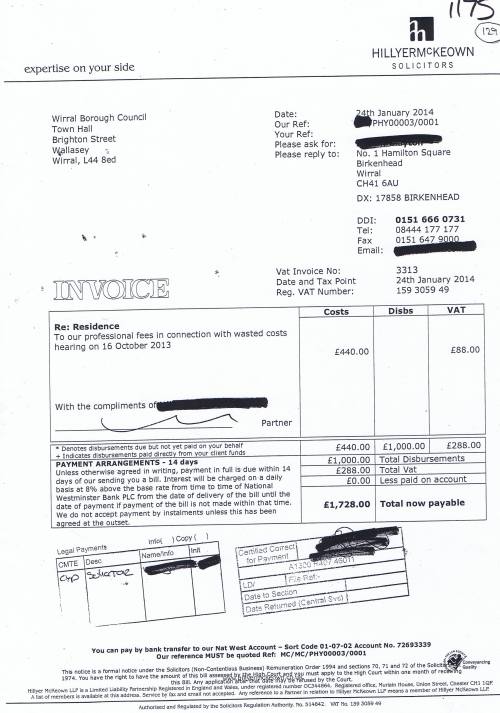Lyndale School Consultation Meeting: David Armstrong explains why there’s a consultation and questions begin (Part 2)
Lyndale School Consultation Meeting: David Armstrong explains why there’s a consultation and questions begin (Part 2)
Continues from Lyndale School Consultation Meeting: Julia Hassall explains why Wirral Council are consulting on closure (Part 1).
David Armstrong (Assistant Chief Executive) said, “OK, thank you. Apologies to those of you who’ve heard this five times before. This is the last time for you. I wanted to just set out the bones of how the school is funded and set out some information requested by staff and I’m responsible for the two budgets and I’ll come back to those and I’m also responsible for school assets and school buildings and I have been responsible for those back in fact to the days when it was relocated from Clatterbridge.
I look after two budgets, a £80 million budget for the Children and Young Peoples Department budget which pays for things like fostering, adoption and a whole host of the other none related schools services. We also have a £240 million budget which is the schools budget. It comes with the title of Dedicated Schools Grant, it comes from government summarised as DSG, it comes into the Council it has to be passed onto schools.
So as Julia [Hassall] said, it’s not about the Council somehow undertaking some of that money and treating it as a saving. It’s about the long term financial security of the school. The DSG when it comes in covers four areas, early years, primary, secondary and special.
(drowned out by someone’s mobile phone)
It goes through a formula, a local formula and that is distributed into schools.”
He explained how the Schools Forum decided on the formula and how it the Schools Forum comprised of volunteers representing the various types of schools. He said that when he was a head in the 1980s, he only managed two budgets in the school. One was books and paper and the second was whatever the school made selling photos. In 1990 there was a change and the big budgets that had been managed by councils were redistributed to schools.
Mr Armstrong said that to begin with each council had its own formula and that every council used different things to redistribute the schools budget. With special schools he said “it has always been slightly different”. He said that nationally that there was a movement at least in part to fund special schools by pupil and not just by place. David Armstrong said that the numbers at Lyndale School had fallen, making it difficult to run the school. In the last few years he said Andrew [Roberts] working with the school governors, the Schools Forum and the other special schools had funded Lyndale School for a number of empty places.
Looking forward, he said that Wirral Council would have to seek authorisation on whether they could do that from a national body called the Education Funding Agency. In his view the future was less certain because the EFA had said that they’d like Wirral Council to come to a point where they were funding per a pupil and not per a place. He said it was a question about the long term financial stability of the school and it wasn’t about making a quick saving by closing the school.
David Armstrong said that they’d been through this process with other primary schools and a secondary school and that the savings had been recycled into the formula. He was happy to take questions.
Phil Ward (chairing the meeting) thanked Mr. Armstrong and said that before they started the opportunity to ask questions and raise issues, he referred to an attendance sheet and asked people who hadn’t signed it to do so. He said, “A lot of people have lots of things to say with conviction and passion and we would ask they allow everybody a chance to speak and put forward to the meeting to hear what’s been said. So on that basis, are there any questions?” After twenty-five minutes (of a two hour consultation meeting) the people present finally got a chance to ask questions.
The first questioner introduced herself and asked if they could get a copy of the notes being taken? Interrupting the questioner before she’d had a chance to finish and talking over her, Phil Ward barked at the questioner in the tone of voice you’d usually reserve for someone who’d stood on your foot, “I’ve answered that one a few times! We’re not taking minutes of the meeting but high level notes and these notes will be used to capture some of the key points raised at the meetings and these notes will also be reported to elected members [councillors] of the Cabinet. They’re not for circulation. Is that clear?”
The same questioner replied with, “but this is a public consultation!”, Phil Ward again interrupted her and said, “It is a public”, she continued, “it should be for everyone”. Phil Ward replied, “I’ve answered that already but the high level notes, we will capture the views, as we have done for the last five meetings and those views, and those views will be reported to members of the Cabinet.”
Councillor Phil Gilchrist asked whether the notes would set out so that they could get a feel of what’s been raised at the consultation meetings? Phil Ward replied, “We can do it in a different way, we can collate all of the notes together and just do a summary report of the key points or alternatively we could choose to do a summary report on each of the individual meetings laying out if you like the issues raised and I think that’s what you’re alluding to in terms of about each meeting the way it seemed to be borne out with these issues, there are those with these issues so we’ll look at that.”
Another question was asked about the notes to which Phil Ward replied, “They’re notes recording the high level points raised at the meetings and importantly we will be reporting them to Cabinet.”
A different questioner stated that he thought the meetings should be fully minuted. He described himself as a support worker that worked full time over three fourteen hour shifts. He referred to previous meetings that people hadn’t turned up to. A meeting at Lyndale School had been arranged and only seven councillors had turned up to it.
He continued and said that despite working full-time, he had found the time to come to the meeting. Continuing, he said he had asked people if they were against the decision to consult on closing Lyndale School and said that a hundred percent of those he had contacted were against closure of Lyndale School. He referred to flaws in the consultation and that there had been “100% disapproval” on “ploughing ahead” when Wirral Council was there to serve the people of Wirral.
Phil Ward replied with, “Is that something which you’d like to submit to us?”. He replied, “Oh, yes” and Phil Ward said, “Just to remind you the consultation finishes on the 25th June.”
Continues at Lyndale School Consultation Meeting: questions about banding, outdoor space and Stanley School (Part 3).
If you click on any of the buttons below, you’ll be doing me a favour by sharing this article with other people.




